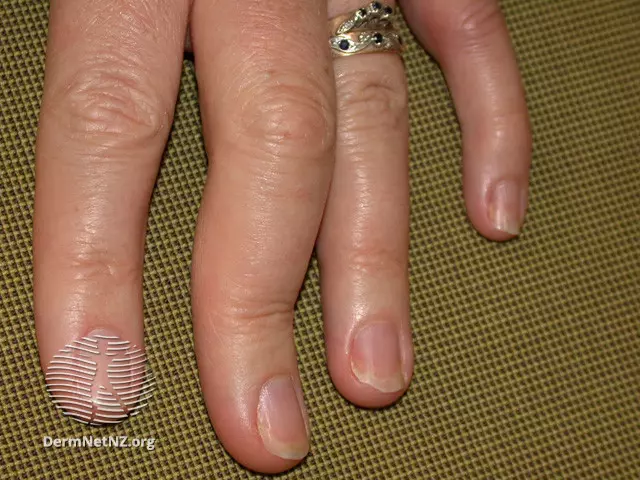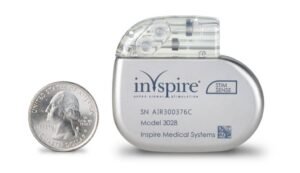Nigella Sativa (Black Seed) and What It Can Do For Your Health
Nigella Sativa (Black Seed): A Natural Powerhouse for Health and Wellness
Nigella sativa, commonly known as black seed or black cumin, has been a staple in traditional medicine systems for centuries. Revered for its wide range of therapeutic uses, this ancient herb has been studied for its potential effects on everything from blood sugar levels to cognitive function. Its main active compound, thymoquinone, is at the core of many of its medicinal properties.
What Is Nigella Sativa?
Nigella sativa is a flowering plant whose seeds have been used for generations across various cultures, including in traditional Chinese medicine and Ayurveda. It goes by many names—black seed, black cumin, fennel flower, and even “seed of blessing.” The seeds and oil are used medicinally and nutritionally due to their impressive nutrient profile and biological activity.
Nutritional Composition of Black Seed
Macronutrients in Nigella Sativa
Nigella sativa seeds are a rich source of:
-
Protein
-
Healthy fats
-
Carbohydrates
-
Dietary fiber
-
Essential amino acids such as glutamate, arginine, cysteine, and methionine
Micronutrients and Phytochemicals
The seeds also contain essential vitamins and minerals including:
-
Iron
-
Zinc
-
Copper
-
Phosphorus
-
Calcium
-
Thiamine (Vitamin B1)
-
Niacin (Vitamin B3)
-
Pyridoxine (Vitamin B6)
-
Folic acid
In addition, they are loaded with plant-based compounds like:
-
Alkaloids
-
Saponins
-
Plant sterols
-
Thymoquinone
-
Essential oils
These elements contribute to the herb’s antioxidant, anti-inflammatory, and immune-supporting benefits.
Common Uses of Nigella Sativa in Traditional Medicine
Historically, Nigella sativa has been used to treat a variety of ailments, including:
-
Asthma and bronchitis
-
Diarrhea and digestive disorders
-
Skin conditions
-
Liver disease
-
Intestinal parasites
-
Low appetite
-
Breast milk production
It’s also commonly used to support immunity and protect vital organs like the liver and kidneys.
Documented Health Benefits of Nigella Sativa
May Support Healthy Blood Pressure and Heart Health
Studies suggest that Nigella sativa can help reduce blood pressure, lower bad cholesterol (LDL), and improve good cholesterol (HDL). It may be effective for:
-
Hypertension
-
Hyperlipidemia
-
Atherosclerosis
-
Cardiovascular inflammation
Both animal and human trials have indicated improved cholesterol levels and blood pressure in those who incorporated black seed supplements into their daily routine.
May Help Manage Type 2 Diabetes
Research has shown that compounds in Nigella sativa may improve blood sugar control. Clinical trials reported:
-
Reductions in fasting blood sugar
-
Decreased HbA1c levels
-
Improved insulin sensitivity
In some studies, it performed comparably to metformin in individuals with prediabetes. It may also improve lipid profiles and inflammatory markers in diabetic and prediabetic individuals.
May Improve Cognitive Function and Memory
Evidence from small human trials and animal studies suggests that Nigella sativa may enhance:
-
Memory retention
-
Focus and attention
-
Overall cognitive function
In one trial, participants taking 500 mg of black seed twice daily for nine weeks experienced significant improvements in mental clarity and memory.
How to Take Nigella Sativa Safely
Typical Dosage
Most studies have used dosages between 1–2.5 grams per day. However, dosage may vary based on age, health condition, and form (seed vs. oil vs. extract).
Possible Side Effects
Side effects are rare but may include:
-
Nausea
-
Bloating
-
Upset stomach
Always consult a healthcare provider before beginning any supplement, especially if you are on medication or managing chronic conditions.
Research Limitations and Caution
Although many laboratory and clinical trials point to the benefits of Nigella sativa, not all traditional uses are fully supported by large-scale human studies. Supplements should not replace standard medical treatments. Further long-term studies are needed to determine optimal dosages and potential interactions with medications.
Frequently Asked Questions About Nigella Sativa
Is Black Seed the Same as Black Cumin?
Yes, Nigella sativa is often referred to as black cumin, though it is botanically different from regular cumin.
Can Black Seed Help with Inflammation?
Preliminary studies show promising anti-inflammatory effects, largely attributed to thymoquinone, but more research is needed.
What Happens If I Take Too Much?
Overconsumption may lead to gastrointestinal discomfort or interact with medications. Always follow recommended guidelines.
How Should I Take Nigella Sativa?
It can be consumed in seed form, oil, or capsule. The choice depends on your health goals and preferences.
Is Nigella Sativa Safe?
Generally, yes—for most healthy adults when taken in appropriate amounts. Consult your healthcare provider if you are pregnant, nursing, or have chronic conditions.
Expert Tips
-
Use black seed oil in moderation as a supplement or food additive.
-
Look for third-party tested products to ensure quality.
-
Avoid using it as a replacement for prescribed medications.
-
Add to your routine gradually to monitor tolerance.
Key Takeaways
-
Nigella sativa is a powerful herb with antioxidant, anti-inflammatory, and antidiabetic properties.
-
It may support heart health, blood sugar regulation, cognitive performance, and overall immunity.
-
Safe, appropriate dosage and consultation with a healthcare provider are essential before use.
-
Though research is growing, further studies are needed to confirm its full potential.
Stay Informed and Inspired
Want more health insights and herbal wellness tips like this? Subscribe to our newsletter and explore natural remedies backed by science.



